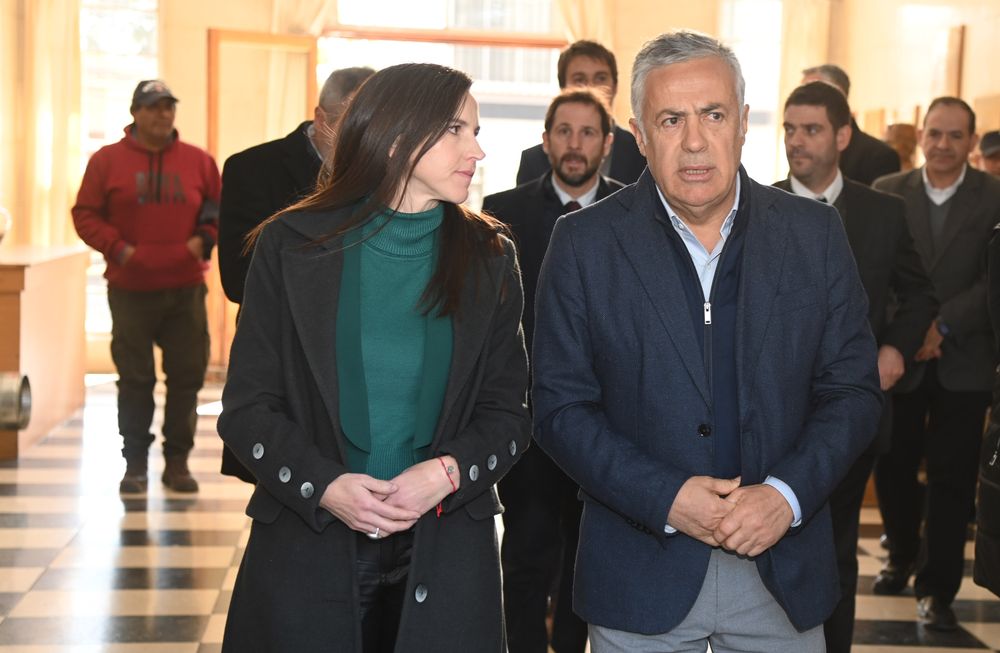An internal audit detected fraudulent licenses in the Police: what action did the Government take?

An internal audit conducted by the Ministry of Security and Justice revealed the irregular use of sick leave within the Mendoza Police Force . In the report requested by Minister Mercedes Rus , the audit found at least 80 cases with false certificates or those lacking adequate technical support, which led to sanctions, voluntary dismissals, and changes to the control system.
At the end of 2024, the Mendoza Police recorded 1,403 active sick leaves , of which 163 corresponded to "catastrophic" illnesses, a special regime that includes payment of 100% of the salary—including additional items—and exempts the officer from providing service during treatment.
"There were people on psychological leave who were supposed to report to work and didn't. Previously, the number of such leavers was 7%, but we've reduced it to 16% for operational duties ," the minister explained.
According to the Ministry, an audit was ordered in July of last year to review the functioning of the system. The review was conducted by a board composed of five professionals from different ministries, who analyzed files and conducted on-site verifications.
Alfredo Cornejo with the Minister of Security and Justice, Mercedes Rus.jpg

Mendoza Government Press.
The results raised alarm bells. Of the 80 cases audited, 30% of the officers were reinstated to operational duties, 10% requested voluntary retirement, and 35% were dismissed from the force by administrative decision .
"What we found was very worrying . There were extended leaves of absence due to psychological or physical illnesses that were not adequately monitored," said Minister Rus.
Sources from the Ministry of Security revealed to Los Andes that, in some cases, false or poorly substantiated certificates were detected, as well as internal collusion within the police health department.
Some casesAmong the cases reviewed, there are situations that surprised even the auditors. An officer on leave for anxiety was caught taking a course to join a cash-in-transit company . "He was using the training he received from the police to enter the private sector, and he did so while lying to the state and the people of Mendoza," Rus stated firmly.
In another case, the medical board visited the home of an agent with a psychological license and was greeted by her sister, who claimed to be unaware of any illness : "My sister is in perfect health and spirits. She's even taking a pastry class."
Police

Gentleness
An agent was also documented as having obtained a medical leave to build his house . In his subsequent statement, he confessed that he actually needed it "to do plumbing work" during construction.
An officer, meanwhile, admitted that she had lied on her certificate because she "didn't want to return to operational duties," neither on the street nor in contact with detainees. "This goes beyond absenteeism. It reflects a deterioration in institutional commitment," said Ministry sources.
New rules: resolutions, digitalization and sanctionsFaced with this situation, the provincial government implemented a series of measures to clean up the system. Among them, two key resolutions stand out:
- Resolution 2483 (August 2024): Establishes new criteria for managing absenteeism in all areas of the Ministry . It requires officers to report any medical situation immediately and submit certificates within 48 hours . It also authorizes home inspections to verify the condition of officers on leave.
Resolution 2483-24 - Absenteeism Control.pdf
- Resolution 3953 (April 2025): specifically regulates licenses for catastrophic illnesses . It defines the medical and administrative criteria that must be met and establishes an evaluation board to determine the validity, duration, and renewal of licenses.
CATASTROPHIC RESOLUTION_250409_185739.pdf
In addition, the certificate submission system was digitized , and now they are uploaded through a unified platform between the Ministry's Human Capital area and OSEP . "With this system, we seek to eliminate discretionary management and streamline controls," explained the Security Department.
The Ministry asserts that the goal is not to persecute those who are truly sick, but rather to establish clear, transparent rules with effective control .
“Worker health is a priority, but the system must also protect those who do their jobs well and the citizens who expect safety and professionalism,” they emphasized.
For the most complex or doubtful cases, the government hired an independent medical board, paid for by the state, to provide objective and depoliticized assessments.
Another significant change is that those who have accumulated extended leave or have a history of mental or physical illness that makes them unfit for operational duties will face greater obstacles to promotion within the force.
"We want to honor those who respect the police profession and perform their duties on the street, often in complex and risky situations. It's not fair that someone, without real justification, is paid the same amount for staying home as a colleague exposed in a mega-operation," Rus concluded.
losandes





